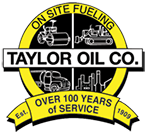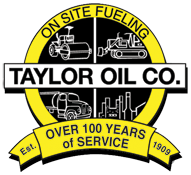How to Increase Fuel Efficiency During the Cold Winter Months – Your vehicle’s fuel efficiency can be negatively impacted by outdoor temperatures. While there’s nothing you can do about the cold temps of winter, there are a few things you can do to increase fuel efficiency and save money. Check out these tips.
Keep an Eye on Tire Pressure
In order to achieve maximum fuel economy for your vehicle, you should regularly check the tire pressure. Tire pressure tends to change with falling temperatures, which can lead to lower fuel efficiency. When you see that the pressure has fallen, inflate the tires to the recommend psi.
Park Indoors
Parking in a garage will not only ensure you avoid direct exposure to the weather, it will positively impact fuel efficiency. If you keep your vehicles outside in winter, your fuel gets thicker and it will need more energy to lubricate the engine.
Also, by parking your garage indoors, the interior of the vehicle stays warmer, which means you don’t have to defrost your vehicle and waste fuel.
Don’t Warm Up Your Vehicle
You may assume that you have to warm up your vehicle for a while before driving it. But this is a common misconception. Starting your vehicle in advance won’t do much to warm up the engine or ensure a more comfortable interior for passengers.
Instead, start your vehicle when you want to leave, but start off at low speeds. As you move towards your destination, the engine will warm up naturally.
Avoid Driving Through Snow
This can’t always be avoided, but try not to drive your car through drifts of snow. Your tires will face more resistance, forcing the engine to work overtime in turning the tires. Overworked engines burn more fuel and aren’t as fuel efficient.
Avoid Winter-Blend Gas
Many refineries produce winter-blend fuel starting in the fall. This kind of fuel tends to evaporate easily at colder temperatures, allowing you to start the engine more quickly. The engine is also able to run more smoothly. However, this type of fuel has less energy than the summer blend, leading to reduced mileage.
Combine Trips
Avoid driving your vehicle for each errand separately throughout the week. Instead, plan ahead and combine them all in a row to spend less on fuel.
Get a Tune-Up
As the temperatures fall, bring your car or truck to the mechanic for a tune-up. Your mechanic can check the wheel alignment, inspect the battery, and change the oil – all of which will help with fuel economy.
Avoid Excessive Weight
The engine will burn more fuel when you’re carrying heavy loads. Remove unnecessary objects in the trunk (bike racks, i.e.) and eliminate roof racks which will reduce weight and wind resistance.
Drive Carefully
Use extra caution when driving in winter. Aggressive driving and hard braking makes your vehicle use more fuel. Reduce your speed to fit unsafe winter road conditions.
Schedule Emergency Services
To avoid running out of fuel unexpectedly, call for emergency fueling services like those offered here at Taylor Oil. Signing up now puts you at the top of the list for deliveries this winter.


